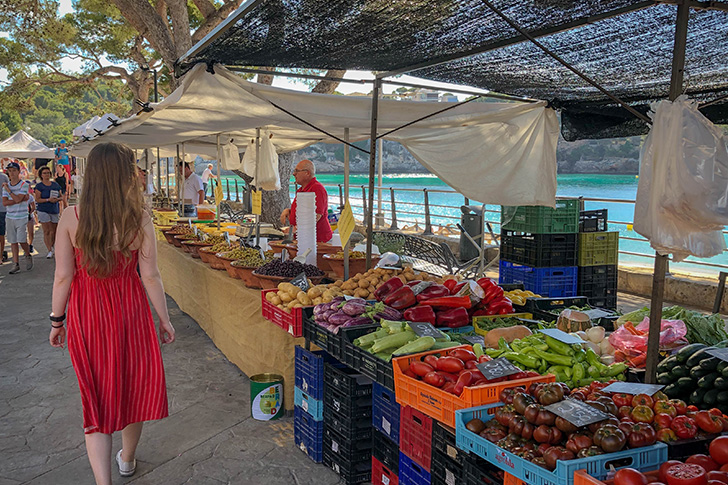Conducting due diligence is vital when buying property in Costa Rica. It involves verifying the legal status of the property and ensuring there are no encumbrances. A thorough check protects you from potential pitfalls and costly mistakes.
The public registry plays a crucial role in this process. It contains detailed information about every registered property in the country. Here, you can verify the property title, ownership history, and any existing liens. This step ensures the property is clear of legal or financial issues.
Engaging a knowledgeable real estate agent can greatly aid your property search. These professionals possess in-depth market knowledge and can guide you to make informed decisions. They help you identify properties that suit your needs and budget.
Brokers are also essential in navigating the market. They bridge the gap between buyers and sellers, often negotiating terms that favor you. Brokers understand the local market dynamics and can leverage this in your favor.
When choosing a real estate agent or broker, look for certain qualities:
- Experience: Check their history in the Costa Rican market.
- Reputation: Ensure they have a track record of reliability.
- Language fluency: Choose someone who speaks your language fluently for seamless communication.
In summary, proper due diligence and the right partnerships are key to successfully navigating Costa Rica’s real estate market.
Legal Assistance: The Role of Real Estate Attorneys
Engaging a reputable real estate attorney in Costa Rica is vital when buying property. The legal landscape can be complex, particularly for foreigners. An experienced attorney helps navigate these intricacies, ensuring a seamless process.
A real estate attorney plays a crucial role from start to finish. They conduct thorough due diligence, examining property titles and resolving potential legal issues. This step safeguards buyers against fraud and ensures clear ownership.
Additionally, attorneys facilitate the signing of necessary documents. They prepare the purchase agreement and oversee the transfer at the National Registry. Their involvement is crucial to aligning the transaction with Costa Rican property laws.
Moreover, an attorney provides guidance on taxes and legal obligations related to property ownership.
Working with an experienced professional allows foreigners to make informed decisions and safeguard their investment in Costa Rica’s real estate market.
Financial Aspects: Taxes, Fees, and Financing
Understanding the financial aspects of property ownership in Costa Rica is essential for foreign buyers. Property taxes are relatively low compared to other countries. Generally, property taxes are set at 0.25% of the registered property value.
Additional taxes may apply, particularly for luxury properties. High-value homes might incur a solidarity tax aimed at funding social housing programs. It’s crucial to factor these costs into your budget when planning your purchase.
Closing costs are another important consideration. These typically range from 3.5% to 4% of the property’s purchase price. This expense usually covers legal fees, registration, and notary fees. It’s important to confirm who is responsible for specific closing costs with all parties involved.
Financing options for foreigners, while available, can be somewhat limited. Many banks in Costa Rica require substantial credit history or guarantees. Consequently, some foreign buyers may consider securing financing from their home countries or preparing for a cash purchase.
Navigating these financial elements requires careful planning. Consulting with a tax advisor or financial expert can provide valuable insights.
This helps buyers be ready for the responsibilities of owning property in Costa Rica, making the investment process easier and more predictable.
The Buying Process: Steps to Buying Property in Costa Rica
Acquiring property in Costa Rica involves several important steps. Each stage requires attention to detail to ensure a smooth transaction. Begin by understanding the entire process, from initial agreement to final transfer.
The first major step is signing a purchase agreement. This document outlines the terms and conditions of the sale. It is crucial to have this agreement reviewed by a legal expert before signing.
Following the signing, a deposit is typically required. This deposit secures the agreement and indicates the buyer’s commitment. The amount is often negotiable, but it commonly ranges around 10% of the total purchase price.
Next, due diligence is conducted to verify the property’s status. This involves checking the public registry for the title status and any existing liens. An attorney usually facilitates this process to ensure accuracy and authenticity.
Once due diligence is complete, the property transfer occurs at the National Registry. This is the final step in the process and legally records the new ownership. It’s vital to ensure all documents are correct and properly filed to avoid future legal issues.
Here’s a summary of the steps involved:
- Signing a Purchase Agreement: Agree on terms and conditions with the seller.
- Making a Deposit: Secure the agreement with a financial commitment.
- Transfer of Property: Officially register the property at the National Registry.
By following these steps, buyers can secure their investment with confidence. Having legal guidance at every stage enhances the security and success of the buying process in Costa Rica.
Post-Buying Considerations: Taxes, Insurance, and Property Management
After buying property in Costa Rica, managing taxes is a key responsibility. Rental income earned from your property is subject to taxation. It’s important to consult with a tax advisor to understand obligations and payment processes.
Securing insurance is another essential step post-purchase. Title insurance can protect your ownership rights against unforeseen claims. Property insurance safeguards your investment against natural disasters and damages.
Consider how you will manage your property, especially if residing abroad. Hiring a local property management company can be beneficial. They handle maintenance, tenant issues, and compliance with local regulations.
Managing rental properties from abroad requires strategic planning. Establish clear guidelines with your management company. Stay informed about local property laws and any changes that may affect your investment.
Here’s a quick checklist for post-purchase management:
- Understand Rental Income Taxation: Consult a tax advisor for guidance.
- Insure Your Investment: Obtain title and property insurance.
- Engage Property Management: Consider hiring local services for property oversight.
These actions ensure your property remains a secure and profitable asset. Proper planning and local expertise are key to successful property management in Costa Rica.
Cultural Insights and Practical Tips for Foreign Buyers
Understanding local culture is beneficial when buying property in Costa Rica. The Costa Rican way of life, known as “Pura Vida,” reflects a laid-back and welcoming atmosphere. This attitude can influence negotiation practices and interactions with locals.
When negotiating property prices, be respectful and patient. Rushing or applying pressure is often frowned upon. Taking a calm approach can foster better relationships and more favorable outcomes.
Spending time in the community before finalizing a purchase is advisable. This gives you a sense of the area’s vibe and lifestyle. Engaging with locals can provide valuable insights into daily life and local amenities.
Being aware of scams and common pitfalls is crucial for foreign buyers. Always verify the credibility of real estate agents and legal professionals. Avoid deals that sound too good to be true and ensure due diligence is thoroughly conducted.
Here are some practical tips for foreign property buyers:
- Embrace Local Customs: Respect the relaxed, friendly culture.
- Take Your Time: Spend extended periods in prospective areas.
- Stay Vigilant: Research professionals and avoid offers that seem suspicious.
These cultural insights can greatly enhance your buying experience. Taking a thoughtful approach can lead to a successful property venture in Costa Rica.
Conclusion:
Understanding the property laws in Costa Rica is essential for anyone considering investment opportunities in the country. These laws not only define which property transactions are allowed but also offer guidance for making informed purchasing decisions.
By learning about these regulations, you can greatly lower potential risks and improve your chances of discovering valuable opportunities that match your goals.
Understanding the legal landscape is an important step in achieving success in real estate ventures in this beautiful location.
Investing in property in Costa Rica offers a unique lifestyle that you won’t find anywhere else.
The Pura Vida lifestyle, which represents a relaxed and joyful way of life, fosters a friendly and inviting environment for both locals and tourists.
By embracing this mindset, you can connect more deeply with the local culture and people, which enhances your overall experience in the country.
Connecting with local communities in Costa Rica improves your experience. It leads to important interactions and lasting memories. This makes living in or visiting the country very special.
Take the time to appreciate the benefits of property ownership in Costa Rica. The peaceful lifestyle, natural beauty, and welcoming culture await you. Dive in with confidence and embrace a life filled with adventure and tranquility.

